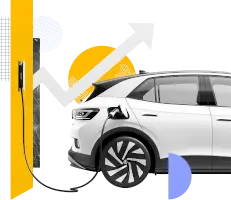President Trump’s Department for Transport (DoT) has threatened to cancel the USD5 billion National Electric Vehicle Infrastructure (NEVI) program. The NEVI program was established to help facilitated the expansion of fast charging installations in the US, which in most states have failed to keep up with EV sales. Although it must first go to congress, this decision casts doubt on the future of charging in the country and as a result may affect EV adoption.

Previously allocated funding at risk
Under the NEVI program states had to submit applications of how they intended to use the funds to the Federal Highway Administration. Previously the Biden Administration had approved five years of state plans, from fiscal years 2022 to 2025. These plans covered USD3.3 billion of the total USD5 billion available in the program. However, although much of the funding has been allocated, a large proportion remains unspent or unassigned to specific projects. According to Rho Motion’s charging data base, YTD 2025 just 296 NEVI and CFI funded charge points had been installed.

How does this effect the US charging market?
Already states such as, Oklahoma, Missouri, Rhode Island, Ohio, and Nebraska have paused their NEVI programs, leaving their planned charging infrastructure in limbo. This uncertainty is weighing heavily on industry players. This comes on top of other challenges including increasing financial pressure due to uncertainty around short-term EV sales and a difficult economic environment.
In 2024, the likes of Enel X Way halted its operations while Tritium filed for bankruptcy a few months after entering the US market. Other new entrants in the US, specifically fast-charging players such as Kempower or Alpitronic, which might have planned to rely heavily on federal funding, could be strongly affected by this political instability.
The Electric Drive Transportation Association, which counts GM, Toyota, EVGo, Stellantis, and others among its members, has called on the Trump administration to promptly restart the program.
Have you read?
- The EV market in flux, smaller producers struggle in 2024, but some see positive performance
- EVs and batteries in 2025, the innovations and challenges ahead
- Kempower, the charging company’s rapid global expansion mixed with trouble
Players still planning growth
Despite the changes in the Trump administration players are still planning to massively expand charging operation in the country. Most recently, IONNA, a charging joint venture established by BMW, General Motors, Honda, Hyundai, Kia, Mercedes-Benz, Stellantis, and Toyota, officially launched its nationwide rollout of charging stations.
Anti EV rhetoric continues
Following the DoT’s move to cancel the NEVI funding, a bill was brought forward to the Senate to repeal the USD7,500 EV tax credit and impose an additional one-time USD1,000 tax on the purchase of an EV. As well as this, the Trump administration has begun to start to unpick the Biden Administration’s EPA emission regulations.
More Information
For more information about how policy changes may affect EV and charging markets, see our research or get in touch.
For full access to our news and insights, log in to our Membership Platform
If you’re not yet a member and would like a trial, fill in the form below.



 Back to News
Back to News